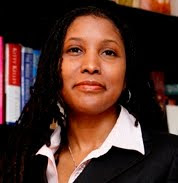by Roger Clegg
To begin with, it is foolish not to grapple with the question whether there is a God. On His existence hinges what sort of life you should lead. Not having an opinion about or having giving serious thought to quantum mechanics is one thing, but the answer to the God question makes a big difference to you personally.
It is true that, absent revelation, it is hard to know for sure whether God exists. But that doesn’t make the answer any less important. Saying you can’t know for sure who will make your best spouse is no reason not to take care in choosing.
Next, we do know two things about the God-existence question: (a) There are good arguments that there is a God, and (b) it is better to be wrong in believing than to be wrong in not believing.
On the first point, I won’t in these 600 words rehearse the various cosmological (Kalam, Thomist, Leibnizian, etc.), scientific evidentiary, design, moral, and other arguments. Suffice it to say that none of these arguments is silly, and that even an honest atheist has to admit that he cannot know for sure that God does not exist.
The second point is, of course, famous as “Pascal’s Wager.” It’s quite straightforward. If there is a God, then there is a huge advantage in believing in Him and living one’s life accordingly, versus not doing so. If it turns out there is no God, then the (much smaller) consequences in this life are all that matter, and indeed it is not at all clear that one has lost anything by believing. Therefore, a rational person should believe, live one’s life accordingly, and cultivate one’s faith.
But how do we know which God to believe in, and how do we know what He wants us to do?
The arguments so far hinge on God wanting people to believe in Him and behave in a certain way; if God doesn’t care, then there’s no point in believing in that God. The most plausible candidate for the kind of God I’m talking about is not Zeus, Ra, or Vishnu, but the monotheistic God that Jews, Christians, and Muslims believe in.
In choosing among these three religions, you must ask whether you believe the evidence that Jesus of Nazareth was the Son of God. If you do, then you are not a Jew or a Muslim. If you don’t, then you have to ask whether you think Mohammed was a true prophet or not. Myself, I believe the evidence that Something Happened in Palestine around A.D. 33, along the lines described in Matthew, Mark, Luke, and John. It is, conversely, harder to believe that the Gospels are all simply made up.
Finally, how do we know what God wants us to do? One can certainly use tradition and logic and deduction. But ultimately one would be very interested in hearing what God Himself has to say on the matter. For that, the New Testament (and the Old, since Jesus endorsed it) is obviously the key text. Interpreting it is not always easy, and perhaps it is not the perfectly transparent text we would like. But you would not throw away the fragment of a treasure map because it wasn’t perfect.
Is all this too cold-blooded and calculating for a Christian? Well, my aim is to persuade nonbelievers, and the fact is that you can’t persuade most nonbelievers except by appealing to their self-interest. Once they believe, then they can begin shedding the cold-bloodedness, as Someone who shed His own blood for mankind taught us to do.
